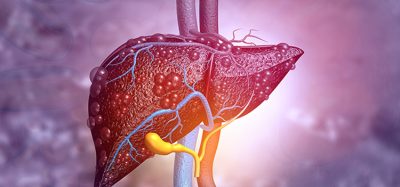Pattern of gene activity for ADHD is unlocked
Posted: 24 November 2022 | Izzy Wood (Drug Target Review) | No comments yet
US researchers identified that those with ADHD have differences in gene activity in the brain.


Researchers at the US National Institutes of Health (NIH) have successfully identified differences in gene activity in the brains of people with attention deficit hyperactivity disorder (ADHD).
The study, published in Molecular Psychiatry, found that individuals diagnosed with ADHD had differences in genes that code for known chemicals that brain cells use to communicate. The results show how genomic differences might contribute to symptoms.
To date, this is the first study to use post-mortem human brain tissue to investigate ADHD.
The researchers used a genomic technique called RNA sequencing to probe gene expression. They studied two connected brain regions associated with ADHD: the caudate and the frontal cortex. These regions are known to be critical in controlling a person’s attention. Previous research found differences in the structure and activity of these brain regions in individuals with ADHD.
With technological advances, researchers have been able to identify genes associated with ADHD, but they had not been able to determine how genomic differences in these genes act in the brain to contribute to symptoms until now.
Importantly, the researchers found that these differences affected the expression of genes that code for neurotransmitters, which are chemicals that brain cells use to communicate with one another. In particular, the results revealed differences in gene expression for glutamate neurotransmitters, which are important for brain functions such as attention and learning.
“Multiple types of genomic studies are pointing towards the expression of the same genes,” said Dr Gustavo Sudre, associate investigator in the Social and Behavioural Research Branch in the US National Human Genome Research Institute’s (NHGRI) Intramural Research Programme. “Interestingly, these gene-expression differences were similar to those seen in other conditions, which may reflect differences in how the brain functions, such as in autism.”
“The study advances our understanding of ADHD by showing how the condition is tied to changes in how certain genes are expressed in the brain. This allows us to inch closer to understanding how genomic differences alter gene expression in the brain and contribute to ADHD symptoms,” added Dr Philip Shaw, senior investigator in the Social and Behavioural Research Branch.
Post-mortem studies are rare because of the limited donation of brain tissue but are incredibly valuable because they provide researchers direct experimental access to the brain.
How neurons stimulate the brain’s microglia
A new MIT study highlights ailing neurons may activate an inflammatory response from the brain’s microglia immune cells
“Such post-mortem studies have accelerated our understanding of other mental health challenges, but to date no such studies have looked at ADHD until now,” concluded Dr Shaw.
Related topics
Gene Testing, Genetic Analysis, Genomics, RNAs, Sequencing, Targets
Related conditions
ADHD
Related organisations
US National Health Institute
Related people
Dr Gustavo Sudre, Dr Philip Shaw








